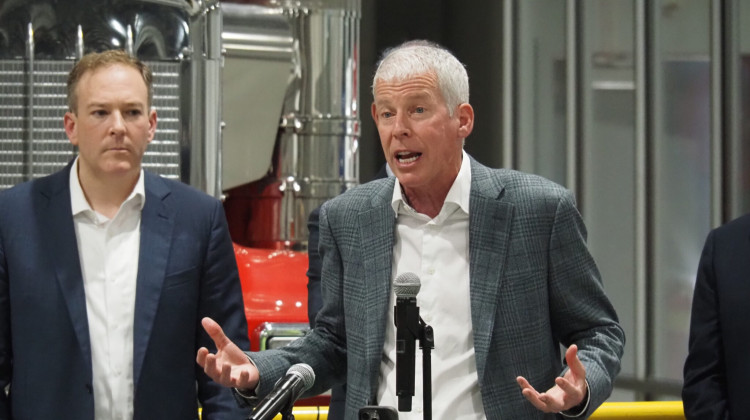
Leaves curl tightly on drought-stressed corn in a Tippecanoe County field in 2012.
Jennifer Stewart/Purdue AgricultureA team led by professors at Purdue University is wrapping up a six-year project with Midwestern corn farmers to help them adapt to climate change.
Useful to Useable was a $5 million project funded by the U.S. Department of Agriculture. Linda Prokopy, a professor of Natural Resources Social Sciences at Purdue University, says the aim wasn’t only to help farmers.
“My motivation was to really figure out how we can help farmers help themselves and help the land and help the water by having better access to information,” Prokopy says.
For example, more information might help farmers fare better through a drought. Prokopy says the project popularized a tool that allows farmers to get climate and weather data based on when they plant their corn.
Researchers also had to figure out who could best relay climate information.
“A farmer isn’t going to sit and listen to me about the science of climate,” says Prokopy. “But they might sit at the coffee table and talk to a crop advisor, who’s very similar to them.”
Prokopy says extension specialists and conservation groups have already started engaging with crop advisors more. She hopes these conversations enable more sustainable food production practices.
Purdue and eight other Midwestern universities, as well as three federal climate centers, made up the Useful to Useable team. A special issue of the journal Climate Risk Management is devoted to the project and available for free online.
 DONATE
DONATE








 Support WFYI. We can't do it without you.
Support WFYI. We can't do it without you.